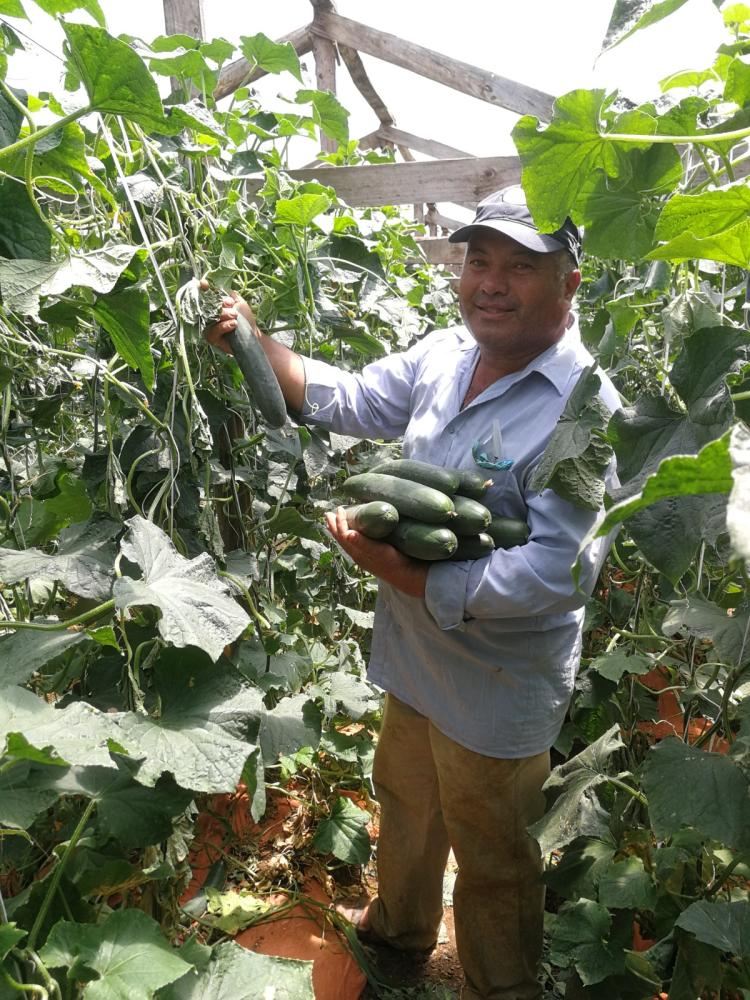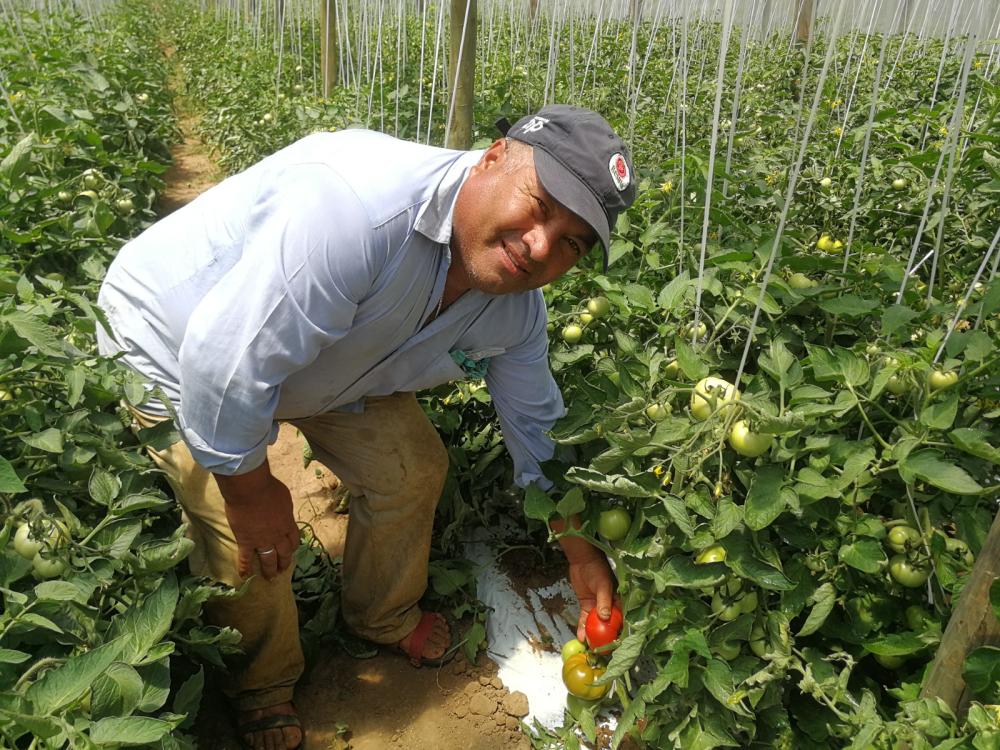Farmers in the Maule region of Chile trust in bioinputs to improve their production

San José, May 24, 2024 (IICA). Farmers in the Maule region of Chile are demonstrating that bioinputs can be used very successfully to improve production, and also to obtain health benefits and make a bigger contribution to environmental sustainability. In this case, producers are applying a blend of strains of native endophytic microorganisms of the genus Trichoderma.
Their work, including their many years of experimentation and testing, is one of the initiatives being disseminated via the Hemispheric Bioinputs Platform, whose Executive Secretariat is operated by the Inter-American Institute for Cooperation on Agriculture (IICA).
Endophytes are defined as microorganisms that colonize living internal tissues of plants for all or part of their life cycle without causing apparent harm to the host. These microorganisms have the capacity to benefit host plants directly in multiple ways, for example, by controlling insect pests, antagonizing plant pathogens, and promoting plant growth.
“We’ve become more environmentally friendly and it’s helped us ensure the health of our flower growers, because these products don’t contain chemicals and we’ve also obtained top quality cut and ornamental flowers,” explained Isabel Ávila Vergara, Technical Head of the PRODESAL unit in the commune of Maule in Chile, and a floriculture specialist.
This initiative is the fruit of the bioinputs research, development and promotion efforts of Chile’s National Agricultural Research Institute (INIA), through the National Center for Bioinputs, which, under a strict technological development process, created a bioinput that complements the integrated crop management actions of thousands of family farmers.
Vegetable, cereal, flower, and minor fruit tree growers have all benefited from the development of this biologically based technology.
Producers are aware of the need for a paradigm shift to enable agriculture not only to be productive, but also sustainable and environmentally friendly. Hence the interest of these Chilean producers in starting to work with bioinputs, and time has shown that they made the right decision. As Leila Ruiz, a flower grower from the Fundo San Juan sector of the commune of Maule explains: “I’m trying to implement biological products in all my crops, and I’ve had very good results in terms of fungi and pests, and excellent flowering.”
“At the INIA we recognize the transformative potential of bioinputs in Chilean agriculture,” said Lorena Barra, Director of Chile’s National Bioinputs Center. “We’re committed to supporting research and development initiatives that promote innovation in this field and provide our agricultural producers with the tools they need to raise productivity in a sustainable way,” the researcher added.
“It’s important to mention that the correct technological development of bioinputs is key to guaranteeing their quality and biological effectiveness. A rigorous research process and robust scientific validation are essential to ensure these products meet the highest standards in terms of safety, efficacy, and environmental impact. The support of research institutions such as the INIA is crucial to promote the development, adoption and good use of technologies,” said Harold Gamboa, a specialist in innovation and bioeconomy at IICA.
Agrochemicals were used intensively in the Maule region for many years, so the farmers’ success with bioinputs highlights the importance of continuing to explore and develop biologically based technologies in Latin American and Caribbean (LAC) agrifood systems. However, in order to continue advancing along this path, it is crucial not only to achieve local successes, but also to take advantage of international cooperation and the initiatives of other countries and research institutions in the region.
The creation and implementation of a space for international collaboration like the Hemispheric Bioinputs Platform is an excellent example of how fostering cooperation and knowledge sharing can strengthen the scientific and technological development of bioinputs in LAC.

According to Gamboa, this platform brings together researchers and professionals with extensive experience, representatives of national institutions, companies, and other stakeholders from more than 11 countries in the region to offer benchmark tools and promote the good use of biologically based technologies.
This collaboration makes it possible to identify best practices, share lessons learned, and make more rapid progress in a field that is crucial for sustainable agriculture in the Americas.
The platform aims to promote and encourage the adoption and use of bioinputs in the Americas, in order to achieve sustainable and productive agriculture that contributes positively to environmental balance, the preservation of biodiversity, and the assurance of human health and the delivery of safe quality food.
It also aims to promote scientific-technological advances, the strengthening and construction of regulatory and regulatory frameworks, knowledge management, and instruments for investment in bioinputs in LAC.
More information
Harold Gamboa
Specialist, Innovation and Bioeconomy Program
Executive Secretariat of the Hemispheric Bioinputs Platform
https://opsaa.iica.int/dimensions-area?thematic-area=64